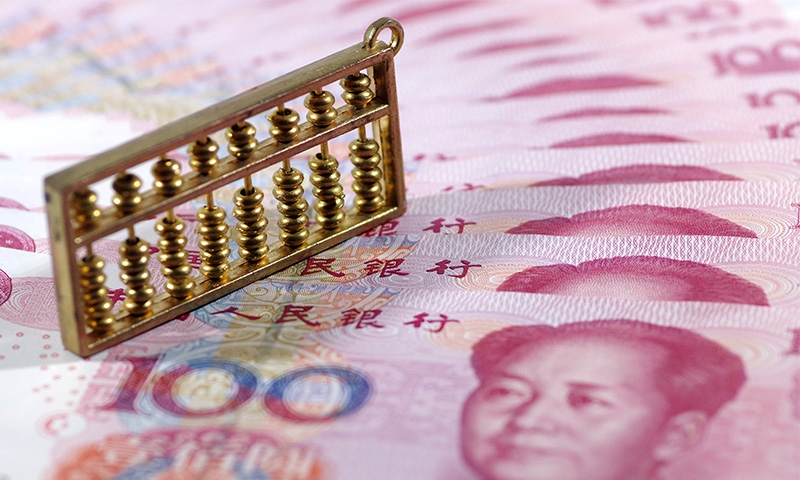China's financial watchdog warns against risks as loan defaults rise in wake of pandemic
Source: Global Times Published: 2020/7/11 19:26:00

RMB Photo: VCG
China Banking and Insurance Regulatory Commission (CBIRC) warned on Saturday that potential financial risks remain high, while urging precautions to be taken in advance for a possible spike in non-performing loans (NPLs).
In a release posted on its website, the commission listed several apparent risks and challenges, including growing NPLs, deteriorating asset quality in small and medium-sized financial institutions and the resurgence of shadow banking.
"It's projected NPLs will appear successively and rise in the future," CBIRC spokesperson was quoted as saying in the release, noting that default risks have been delayed due to a time lag between the slowing of economic growth and the financial sector, and the short-term impact of macroeconomic policies.
By the end of June, the balance of NPLs reached a value of 3.6 trillion yuan ($514 billion), with NPL ratio at 2.1 percent, up 0.08 percentage points since the beginning of 2020, data from the CBIRC showed. By contrast, banks' provision coverage ratio dropped 4 percentage points to 178.1 percent.
China Business Journal reported on Saturday that 72 bonds had defaulted in China by the end of June, worth 87.64 billion yuan, up 46.15 percent year-on-year, citing data from industry data provider Wind.
"We must make preparations for a possible big rebound of NPLs," the spokesperson said, stressing the reasonable increase in disposable volume of NPLs by expanding channels.
The spokesperson said the commission would step up supervision of money in a bid to guide capital to the real economy, while preventing speculation that creates an asset bubble.
Yuan-denominated loans grew 12.09 trillion yuan in the first half of 2020, an increase of 2.42 trillion yuan year-on-year, according to the CBIRC.
Global debt has seen an unprecedented surge due to governments' COVID-19 response. According to a report released by the Institute of International Finance in April, global debt is now 40 percentage points ($87 trillion) higher than at the onset of the 2008 financial crisis.
But unlike ultra-loose monetary policies adopted by countries including the US, China's central bank still stresses prudent monetary policy that is more flexible and accommodative.
Wang Xin, an official with the People's Bank of China, said at a press briefing on Friday that the country's economy is expected to further improve during the rest of the year, with "new infrastructure" projects including 5G and industrial networks lending very important momentum to economic growth.
Global Times